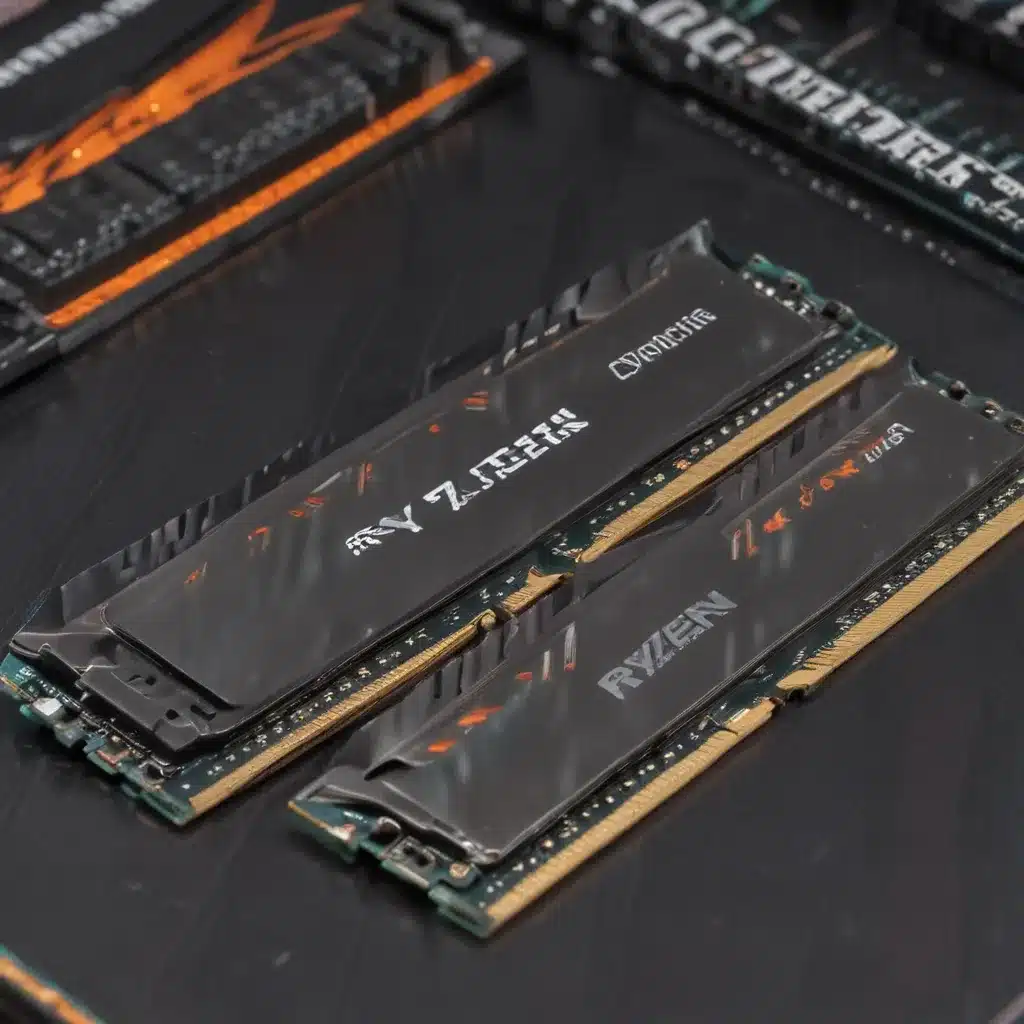The DDR5 Dilemma: Is it Worth the Upgrade?
As a seasoned DIY computer enthusiast, I’ve always been on the hunt for the latest and greatest hardware upgrades. And when the shiny new Ryzen 7000 CPUs hit the scene, I couldn’t resist the temptation to ditch my aging rig and dive headfirst into the realm of DDR5 RAM. But the real question that’s been nagging at me is: just how much of a performance boost can I expect from making the switch?
Well, friends, I decided to put on my investigative hat and dig deep into the realm of benchmark data. I scoured the internet, combing through forums [1], [2], [3], and expert reviews [4], [5], [6], [7], [8] to uncover the juicy details. And let me tell you, the results are quite fascinating.
The Need for Speed: Ryzen 7000 and DDR5 RAM
Here’s the skinny: when it comes to the Ryzen 7000 series, the difference in performance between DDR4 and DDR5 RAM is actually quite modest. In fact, according to the comprehensive benchmarks from Puget Systems [4], the overall performance increase from using the fastest DDR5 memory configurations over the official maximum supported DDR4 speeds is only around 4-7% for the Ryzen 9 7950X.
Now, before you start thinking, “Wait, that’s it? I was expecting fireworks!” let me explain. While the raw numbers might not seem earth-shattering, the devil is in the details. You see, certain workloads, like those in Unreal Engine, can see a more pronounced 12% boost from the speedier DDR5 RAM [4]. So if you’re a game developer or someone who dabbles in virtual production, that extra oomph could be a game-changer.
Stability: The Unsung Hero of RAM Upgrades
But here’s the catch – and it’s a big one: the tradeoff for that extra performance may come at the cost of stability. You see, as I delved deeper into the research, I discovered that pushing DDR5 memory beyond the official supported speeds can lead to some serious headaches [4]. We’re talking about a higher likelihood of crashes, blue screens, and applications going haywire.
Now, I know what you’re thinking – “But I’m a tinkerer! I live for that kind of challenge!” And hey, I respect that. But as someone who relies on their computer for their livelihood, I can’t afford to have my rig crapping out on me at the worst possible moment. And let’s be real, not all of us have the patience (or the time) to play around with memory timings and voltages just to eke out a few extra FPS.
The Verdict: Stick to the Specs for Stable Workloads
So, what’s the verdict? Well, if you’re like me and your workflow revolves around content creation, photography, or video editing, the experts seem to agree that you’re generally better off sticking to the officially supported memory speeds for your CPU [4]. Sure, you might miss out on that extra 5-7% performance boost, but you’ll be rewarded with a rock-solid, stable system that just gets the job done – no fuss, no muss.
But if you’re the type who lives on the bleeding edge, and you’re willing to put in the time and effort to fine-tune your DDR5 setup, then by all means, go for it! Just be prepared for the occasional hiccup and the potential need to tinker under the hood.
Personally, I think I’m going to play it safe and opt for the officially supported DDR4 memory configuration. After all, as the old saying goes, “If it ain’t broke, don’t fix it.” And in the world of high-performance computing, a stable, reliable system is worth its weight in gold.
Key Takeaways
- The performance difference between DDR4 and DDR5 RAM for Ryzen 7000 is relatively modest, around 4-7% on average.
- Certain workloads, like Unreal Engine, can see a more significant 12% boost from faster DDR5 memory.
- Pushing DDR5 beyond its official supported speeds can lead to stability issues, like crashes and blue screens.
- For content creation, photography, and video editing workflows, it’s generally better to stick to the officially supported memory speeds for reliability.
- Enthusiasts willing to tinker with memory timings and voltages can squeeze out more performance, but at the cost of potential system instability.
References
[1] Knowledge from https://www.reddit.com/r/buildapc/comments/119n10j/is_there_a_massive_difference_between_ddr5_and/
[2] Knowledge from https://forums.sketchup.com/t/deciding-which-affordable-cpu-gpu-to-purchase/218658
[3] Knowledge from https://www.reddit.com/r/Amd/comments/xtp92e/ryzen_7000_performance_impact_of_ddr5_memory/
[4] Knowledge from https://www.pugetsystems.com/labs/articles/impact-of-ddr5-speed-on-content-creation-performance-2023-update/
[5] Knowledge from https://www.reddit.com/r/buildapc/comments/11r2egf/32_or_64_gb_ram_in_a_ddr5_build/
[6] Knowledge from https://www.crucial.com/articles/about-memory/everything-about-ddr5-ram
[7] Knowledge from https://www.tomshardware.com/features/ddr5-vs-ddr4-is-it-time-to-upgrade-your-ram
[8] Knowledge from https://www.quora.com/Is-16-GB-of-the-new-4800-DDR5-RAM-better-than-32-GB-of-3200-DDR4-I-recently-bought-a-laptop-with-the-DDR5-as-it-has-a-better-price-and-was-wondering-if-that-was-the-right-choice













